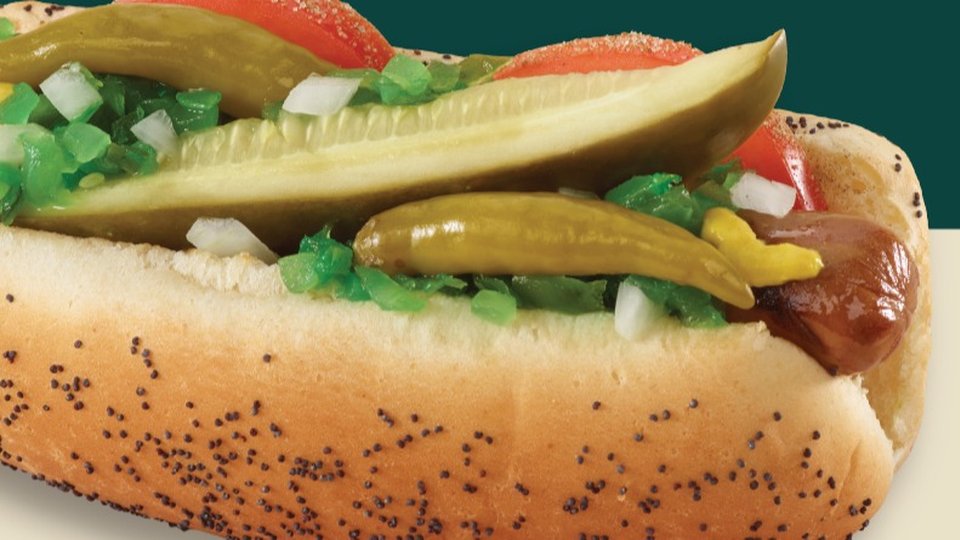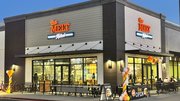Food & Beverage
Portillo's testing plant-based hot dog

May 16, 2022
Portillo's Hot dog lovers are getting a plant-based version of the Chicago-style dog, thanks to a partnership between the 70-unit chain and Greenleaf Foods, the owner of the plant-based brand, Field Roast. Serving Chicago-style hot dogs for 59 years, Portillo's is proving that you can "teach an old dog new tricks" by introducing its first plant-based hot dog, said Adam Grogan, president of Greenleaf Foods.
"We are incredibly proud to partner with Portillo's to bring the flavor of Field Roast to this iconic chain rooted in Chicago hot dog history," he said in a company press release. "Americans eat billions of hot dogs every year, and now they have a delicious plant-based option to satisfy this classic craving."
Now available at restaurants nationwide, the Garden Dog features the Field Roast Signature Stadium Dog crafted for Portillo's and topped with the classic Chicago-style hot dog toppings: mustard, relish, chopped onions, tomatoes, celery salt, pickle spear, and sport peppers on a steamed poppy seed bun.
"When we first started thinking about bringing a plant-based hot dog to our menus, we tasted dozens of different versions. It became clear that Field Roast produces the best product on the market," said Michael Osanloo, Portillo's CEO and president, in the release. "When Field Roast customized its Signature Stadium Dog just for us, we knew we had a winner. We can't wait for our guests — both new and old — to be able to enjoy the Garden Dog, our delicious take on this iconic American classic."
The Field Roast Signature Stadium Dog, which is a pea protein-based hot dog inspired by the flavors of kosher-style beef hot dogs, is double-smoked using maple hardwood chips and a combination of steam and dry heat. The plant-based hot dog also offers the same amount of protein per serving as most traditional hot dogs but contains less sodium and is made without nitrites or GMOs, according to the release.
In 1963, Dick Portillo invested $1,100 into a small trailer to open the first Portillo's hot dog stand in Villa Park, Illinois, which he called "The Dog House."
 ChatGPT
ChatGPT Grok
Grok Perplexity
Perplexity Claude
Claude















